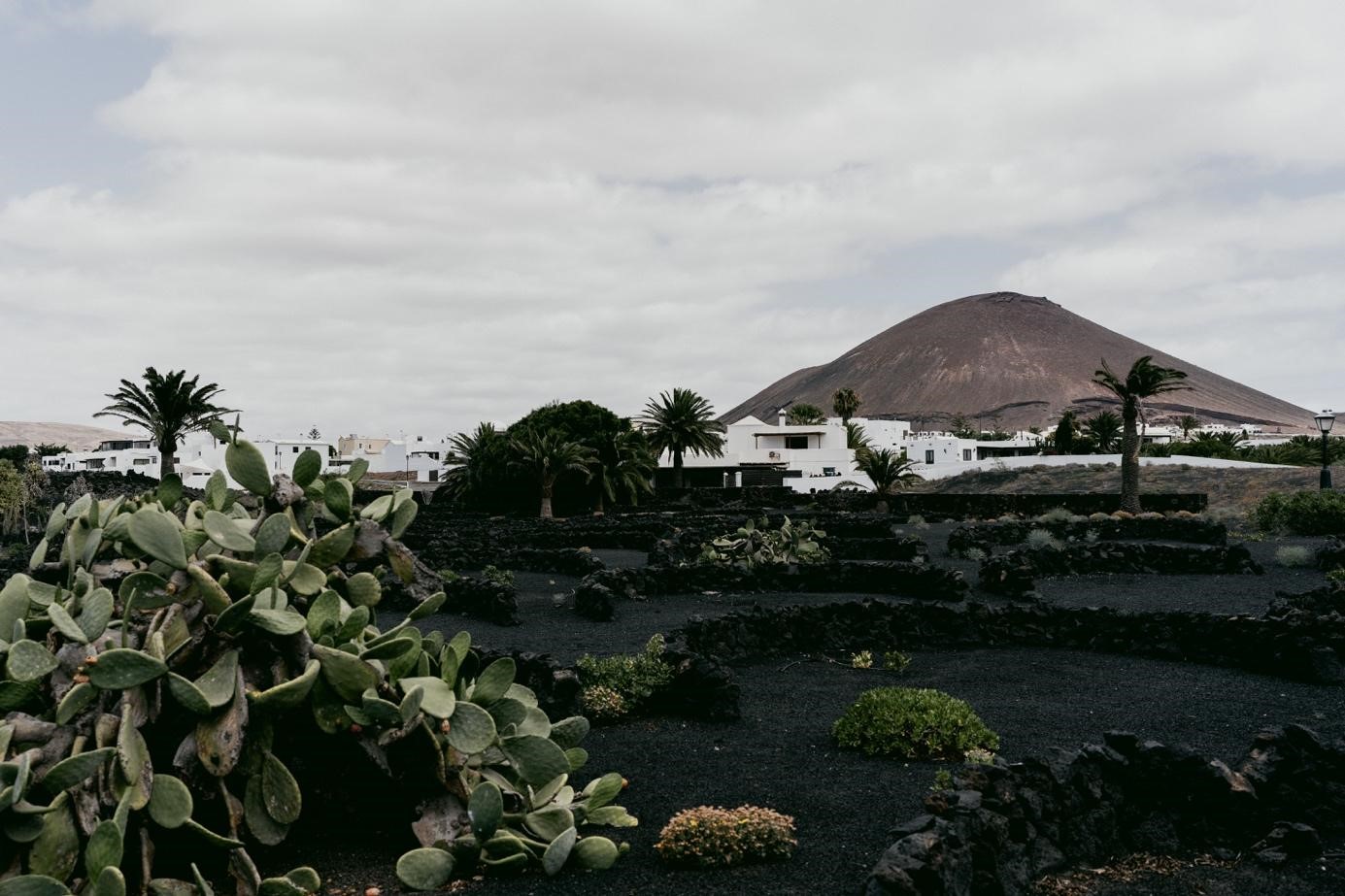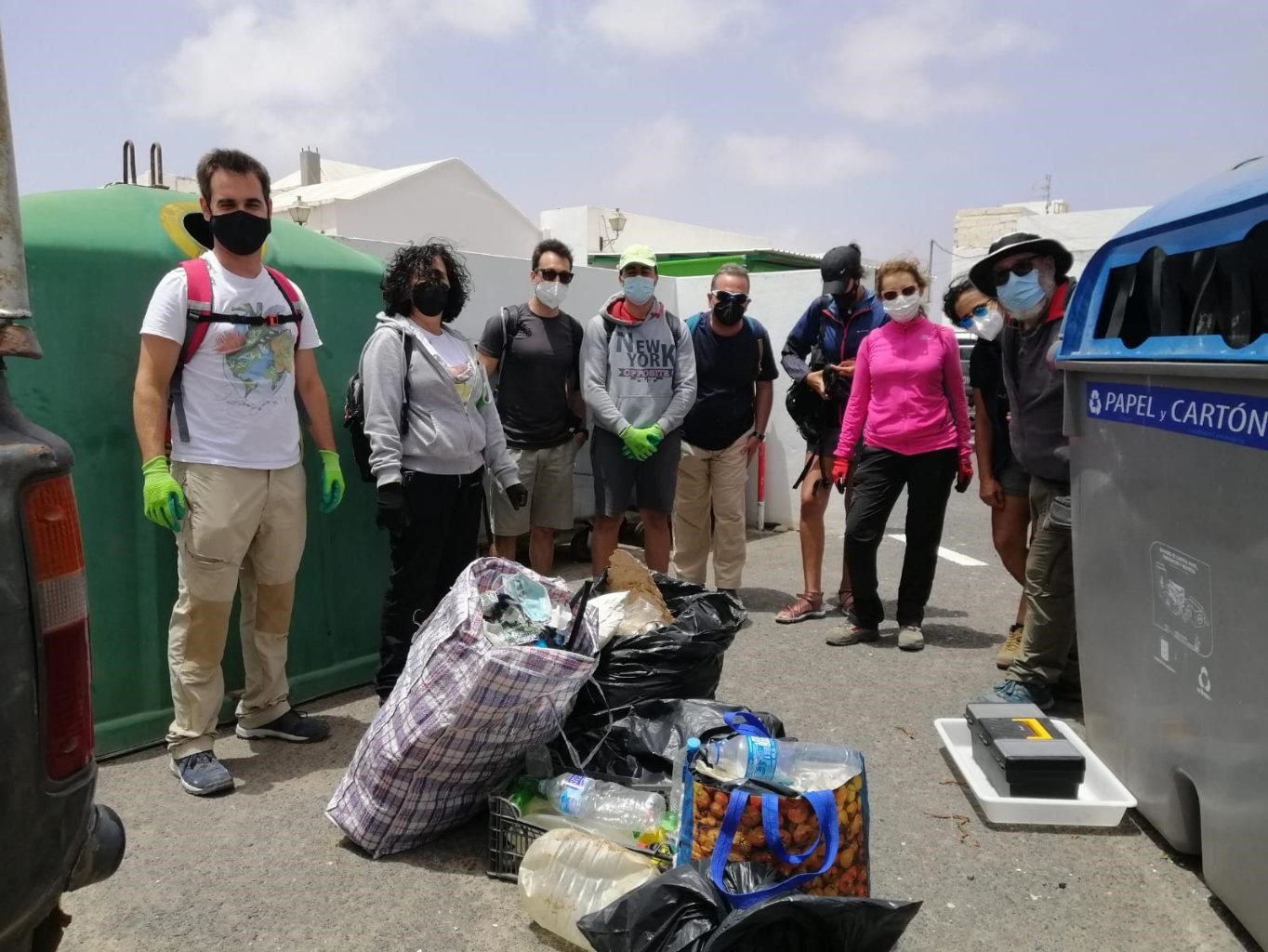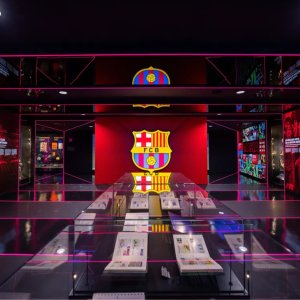“Faced with the spectacular presence of the systematic destruction and deterioration of our planet, due to this excessive desire for power and wealth, we are in a position to intuit, due to that hidden mystery of instinct, the catastrophe of everything that could happen, if we do not fight by contributing the effort of each one”, César Manrique.
In 1966, artist César Manrique returned to his native island tired of the social environment of New York City. I longed to return to Lanzarote with its volcanoes, its coves and its people. He was always very committed to the environment and reflected it through his art.
He opened the island to tourism, transforming it with his great power to raise awareness. As explained by the Art, Culture and Tourism Centers of Lanzarote, without his work, it would be impossible to imagine the island as it is today: “In all his creations, he sought an extremely respectful and enriching dialogue with the environment and nature and At the same time, it kept alive the architectural values of the island tradition; highlighting the personality of Lanzarote.”

Environmental culture permeated the inhabitants of Lanzarote and in 1993, a year after Manrique's death, Lanzarote was declared a Biosphere Reserve by UNESCO. This plan was conceived from the perspective of citizen participation with the objective of promoting the sustainable development of the island.
But the passage of time threatens oblivion. “Inspired by César Manrique, the island stood out for its awareness of conservation, but it has suffered population growth in a short time, and people are losing those values,” explains Ana Carrasco, managing director responsible for the Reserve Biosphere office.
In recent years, Lanzaroteans themselves are making efforts to rekindle their love for the natural, architectural and social wealth of the island. With this goal, the Biosphere Reserve office created the citizen volunteer program “Together we are Biosphere” in 2016.
“We wanted to involve the island's population in the management and conservation of Lanzarote. The Biosphere Reserve is not an imposition, the island made this decision through its governing bodies, so it cannot be unrelated to this declaration,” explains Carrasco.
“The sum of all the individuals is what will really produce results. When a vast majority of the population is aware of the fragility and balance of the whole, we will be able to reverse the destruction that we have set in motion”, César Manrique.
This volunteer program launched different initiatives aimed at both public and private entities that are based on three pillars: environment, society and science. Its actions range from cleaning coasts and beaches to supporting groups experiencing social exclusion and monitoring microplastic pollution.

To register, citizens send an email to Somosbiosfera@cabildodelanzarote.com and in this way they are notified of the different activities. The office also advertises them through its social networks and press releases. Participation is being a success, since all actions are accompanied by educational, training and leisure activities so that citizens get actively involved, making the experience very enriching.
However, according to Carrasco, the activities of Junt@s Somos Biosfera are now on pause due to lack of personnel. “We do not rule out resuming it, although it will surely not be possible to do so with the same frequency as before. However, we have other activities, such as observing the marine environment, which are free and open to anyone who is interested."
Tourists who visit the island can also participate in these activities and also have other volunteer options through private companies. For example, the Yaiza City Council and the Biosphere Reserve office have supported companies such as Pura Vida Diving and Kayak Walk Lanzarote with their volunteer initiatives to clean different parts of the southern coast of garbage.
In Lanzarote, there are many companies that are committed to a type of tourism that respects the environment, which gives continuity to the values that César Manrique promoted so much:
“We have to make the tourism industry coexist with the defense of the territory and our own culture. And that coexistence is possible, but, above all, necessary, mandatory so as not to live with our backs to the future.”













